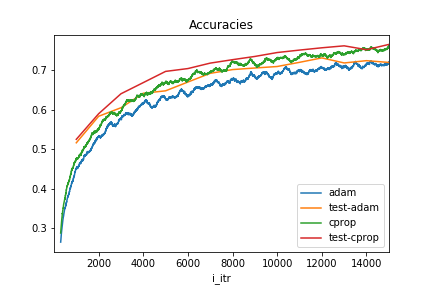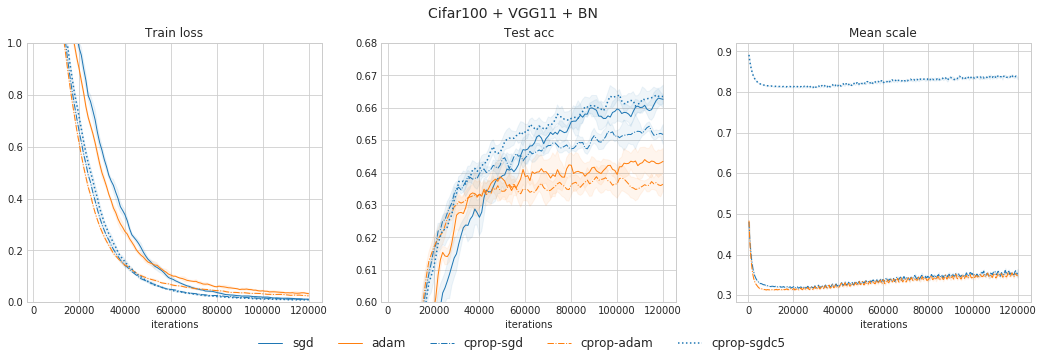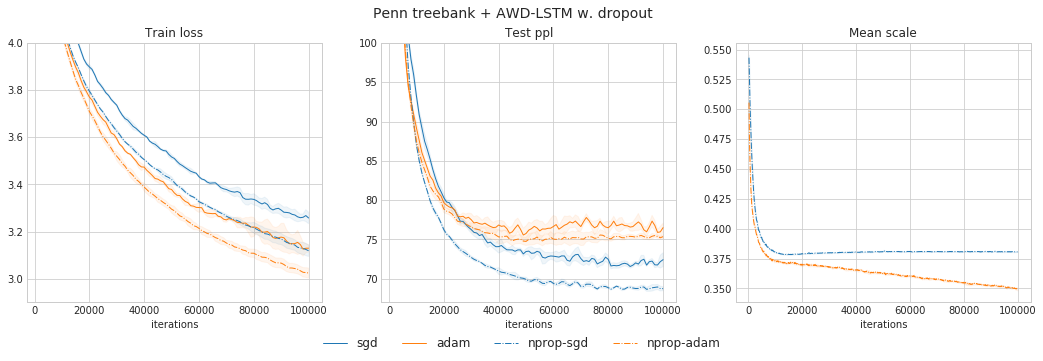Implementation of CProp in Pytorch.
Looking for Tensorflow version?
A preprint Arxiv version can be found at https://arxiv.org/abs/1912.11493.
Paper is being reviewed.
Requires Python with type-hint support (I guess 3.6+).
It seems to require Pytorch 1.2 due to its use of JIT.
# clone
...
# install
pip install -e .
- CPropSGD. CProp-augmented SGD.
- CPropAdam. CProp-augmented Adam.
- CProp universal wrapper. Slower but could be used with any optimizer.
import cprop
opt = cprop.CPropSGD(net.parameters(), lr=0.1, cprop_beta=0.999, cprop_c=1, cprop_cdf='normal')
...
# use it as usual
opt.step()
cprop_beta is the gradient horizon. [0.999, 0.9997, 0.9999] work well depending on how long is your training job. You should choose for a larger cprop_beta if you aim to train for longer.
cprop_c is overconfidence coefficient. Default 1. Try it first. If you want better generalization, use larger c, e.g. 3, 5.
cprop_cdf how to compute CDF. normal is the most correct way to do it (but slowest). bft using Logistic approximation which is ~10% faster with no observable performance loss.
With any optimizer:
opt = any optimizer
opt = cprop.CProp(opt, beta=0.999, c=1, cdf='normal')
...
# use it as usual
opt.step()


